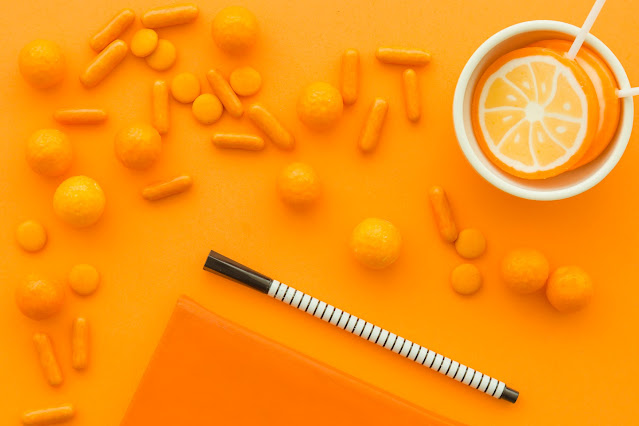The Role of Vitamin E in Preserving Youthful Appearance and Mood
Vitamin E, an antioxidant that may be stored in fat cells, is essential for good health. It's crucial for warding off the aging and disease-causing effects of oxidative stress inflicted by free radicals in our cells. The need of getting enough vitamin E from food or supplements rises with age because of the increased vulnerability of the body to free radical damage. This article will discuss vitamin E's anti-aging properties, how it may make you feel and look younger, and the best methods to include it in your diet and beauty regimen.
Realizing the Nature of Aging
Many variables, including heredity, lifestyle, and the surrounding environment, contribute to the aging process. Damage to cells and DNA due to oxidative stress is a major contributor to aging and the development of chronic illnesses. Vitamin E helps prevent damage from oxidative stress by scavenging harmful free radicals and lowering inflammation. You may delay the onset of age-related disorders including Alzheimer's and cardiovascular disease by eating foods or taking supplements rich in vitamin E.
Vitamin E's Role in Preventing Damage From Oxidative Stress
When free radicals and antioxidants are out of whack, the body experiences oxidative stress. Highly reactive chemicals called free radicals have been linked to cellular and DNA damage, which in turn contributes to aging and chronic illnesses. Cells are protected by vitamin E since it is an effective antioxidant that may eliminate harmful free radicals and lower oxidative stress. Vitamin E's anti-inflammatory and free radical-scavenging properties make it an excellent anti-aging supplement. Defending against oxidative stress and improving general health may be as easy as eating vitamin E-rich foods or taking vitamin E pills.
The Role of Vitamin E as an Anti-Inflammatory
The body's innate response to infections and wounds is inflammation. However, persistent inflammation may hasten the aging process and contribute to age-related disorders. Vitamin E's potent anti-inflammatory capabilities have been found to aid in the treatment of chronic inflammation and the avoidance of age-related disorders. Vitamin E helps the body age healthily and protect itself from chronic illnesses like diabetes, cancer, and heart disease by lowering inflammation and oxidative stress. Supplementing with vitamin E or eating more vitamin E-rich foods may reduce inflammation and boost health.
Vitamin E's Benefits for Your Skin
Collagen is a protein responsible for the skin's firmness and resilience. Collagen synthesis decreases with age, which contributes to skin wrinkling and laxity. Vitamin E has been demonstrated to increase skin suppleness and stimulate collagen formation, both of which work together to lessen the visibility of wrinkles and fine lines. Vitamin E's antioxidant qualities also defend the skin against free radical damage from UV rays and environmental pollutants. You may delay the signs of aging and keep your skin looking fresh and young by eating foods and taking supplements high in vitamin E.
Protecting Your Heart Using Vitamin E
High blood pressure, elevated cholesterol levels, and chronic inflammation are all major contributors to the global epidemic of cardiovascular disease. The antioxidant vitamin E has been linked to a variety of health benefits, including a reduced risk of cardiovascular disease. Inhibiting oxidative stress and inflammation in the arteries, vitamin E may reduce the danger of cardiovascular disease and stroke. Improve heart health and lower your risk of cardiovascular disease by adding vitamin E-rich foods or supplements to your diet.
Vitamin E and the Immune System
The immune system is essential in warding off harmful pathogens. White blood cells are crucial for combating infections, and vitamin E has been found to boost their synthesis. Vitamin E's ability to scavenge free radicals means it helps shield immune system cells from harm. Vitamin E supplementation has been demonstrated to increase the effectiveness of vaccines in older persons. You may strengthen your immune system and enhance your general health by eating more vitamin E-rich foods or taking vitamin E supplements.
Vitamin E Foods That Really Deliver
Nuts, seeds, dark green vegetables, vegetable oils, and vitamin E fortified cereals are all good sources of this essential nutrient. Some of the best sources of vitamin E include almonds, sunflower seeds, spinach, avocado, and wheat germ oil. The recommended daily intake of vitamin E is 15 mg for adults. While it is possible to meet this requirement through diet alone, supplementation may be necessary for individuals who do not consume enough vitamin E-rich foods. It's important to speak with a healthcare professional before starting any supplementation regimen.
Vitamin E Supplements
Ephuroalabs multivitamin gummies are a popular supplement that contains vitamin E along with several other essential vitamins and minerals. Each gummy contains 15 mg of vitamin E, which is the recommended daily intake for adults. The gummies are made with natural flavors and colors and are free from common allergens such as gluten, dairy, and soy. They are also suitable for vegetarians. While multivitamin gummies can be a convenient way to supplement your diet, it's important to speak with a healthcare professional before starting any new supplement regimen.
Vitamin E is a powerful antioxidant that can help protect the body against oxidative stress, inflammation, and free radical damage. By reducing the impact of these factors on the body, vitamin E can help slow down the aging process and reduce the risk of chronic diseases. Vitamin E can also improve skin health, boost the immune system, and promote heart health. Incorporating vitamin E-rich foods or supplements into your diet can be a simple yet effective way to maintain a youthful appearance, improve overall health, and feel your best at any age.

Comments
Post a Comment